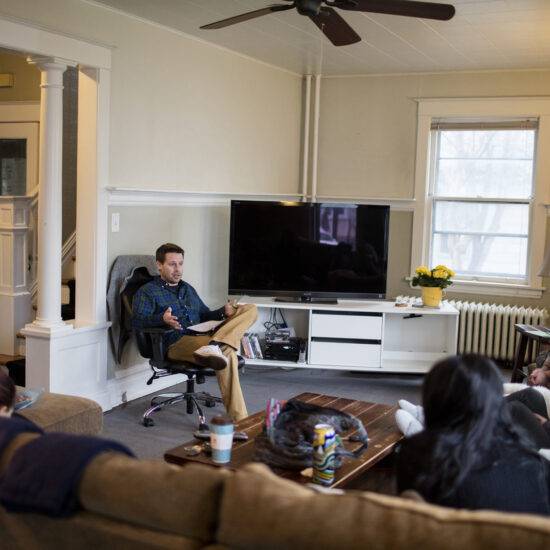Seeking addiction treatment is a critical step toward recovery, but for many individuals and families, the cost of rehab can be a significant concern. In this blog, we’ll explore the factors that contribute to the cost of rehab, considerations to keep in mind when choosing a treatment program, and available financial assistance options to make rehab more accessible.
However, one of the most considerable barriers to accessing treatment is the concern over the cost of rehab. For many individuals and families, the financial aspect of rehab can be forbidding and overwhelming, leading to hesitation or reluctance to seek help.
We will go through the topic of rehab costs to provide clarity and understanding. We’ll explore the factors that influence the cost of rehab, considerations when choosing a rehab program, and options for financial assistance. By addressing these concerns, we aim to empower individuals and families to make informed decisions about seeking treatment for addiction and taking steps toward recovery.
Understanding the Cost of Rehab
Types of Rehab Programs
- Residential Treatment: Provides 24/7 care in a residential setting, typically more expensive due to accommodation and intensive services.
- Outpatient Rehab: Offers therapy and treatment sessions while allowing individuals to live at home, generally more affordable than inpatient programs.
- Luxury or Executive Rehab: Includes upscale amenities and personalized services, often at a higher cost.
- Government-Funded or Nonprofit Organizations: Government-funded or nonprofit organizations provide affordable or free treatment options for those with financial need.
Program Length
- The duration of rehab can vary depending on individual needs and program requirements.
- Short-term programs may range from a few weeks to a couple of months, while long-term programs can last six months to a year or longer.
- Longer durations typically entail higher costs, but they may offer more comprehensive care and better long-term outcomes.
Types of Amenities
- Rehab facilities may offer a range of services, including medical detox, therapy, counseling, recreational activities, and holistic treatments.
- The inclusion of amenities such as private rooms, gourmet meals, fitness facilities, and alternative therapies can contribute to higher costs.
Location
- The geographic location of the rehab facility can significantly impact its cost.
- Rehab centers in urban areas or popular tourist destinations may have higher overhead costs, leading to higher treatment fees.
Additional expenses to consider, such as medication, therapy sessions, and aftercare services
Medication
The cost of medication used in addiction treatment, such as detox medications or medications for co-occurring mental health disorders, may not always be included in the upfront cost of rehab. Individuals should budget for prescription costs and consult with their healthcare provider or pharmacist to explore affordable options.
Therapy Sessions
While therapy sessions are typically included in the cost of rehab programs, additional therapy sessions or specialized treatments such as trauma therapy or family therapy may incur extra charges. Individuals should inquire about any additional therapy costs and factor them into their budget.
Aftercare Services
Aftercare services, such as sober living arrangements, outpatient therapy, support groups, and ongoing medication management, are essential for maintaining sobriety after completing a rehab program. While some aftercare services may be covered by insurance, others may require out-of-pocket expenses. It’s crucial for individuals to plan for aftercare costs and explore affordable options available in their area.
The average cost of rehab and factoring in additional expenses can help individuals and their families make informed decisions when selecting a treatment program that meets their needs and budget.
Ways to Finance Rehab
Health insurance coverage for addiction treatment
- Many health insurance plans offer coverage for addiction treatment services, including detoxification, inpatient and outpatient rehab programs, medication-assisted treatment, and therapy sessions.
- Individuals should review their insurance policy to determine what services are covered, any limitations or exclusions, and whether pre-authorization is required before seeking treatment.
- Common types of insurance plans that may cover addiction treatment include employer-sponsored health insurance, Medicaid, Medicare, and individual health insurance plans purchased through the Health Insurance Marketplace.
Financing options, including payment plans and medical loans
- Some rehab facilities offer flexible payment plans that allow individuals to spread out the cost of treatment over time. Payment plans may require a down payment upfront, followed by monthly installments for the remaining balance.
- Additionally, individuals may explore medical loans or healthcare financing options to cover the cost of rehab. Medical loans are unsecured personal loans specifically designed to cover medical expenses, including addiction treatment. Interest rates and terms may vary depending on the lender and the individual’s creditworthiness.
Scholarships, grants, and sliding-scale fees offered by some rehab facilities
- Some rehab facilities offer scholarships or grants to individuals who demonstrate financial need or meet specific eligibility criteria. These financial assistance programs may cover part or all of the cost of treatment.
- Sliding-scale fees are another option for individuals with limited financial resources. These fees are based on income and ability to pay, allowing individuals to access treatment at a reduced cost based on their financial situation.
Government-funded programs and non-profit organizations providing financial assistance
- Government-funded programs, such as state-funded rehab centers or programs supported by the Substance Abuse and Mental Health Services Administration (SAMHSA), may offer free or low-cost addiction treatment services to eligible individuals.
- Non-profit organizations and charities may also provide financial assistance for addiction treatment through grants, scholarships, or subsidies. These organizations may have specific eligibility criteria and application processes, so individuals should research available resources in their area.
Exploring these financing options can help individuals and their families cover the cost of addiction treatment and access the care they need to achieve long-term recovery. It’s essential to thoroughly research each option, compare costs and benefits, and consult with healthcare professionals or financial advisors for personalized guidance.
Considerations When Choosing a Rehab Program
Quality of Care
- Focus on finding a reputable rehab center with experienced staff, evidence-based treatment methods, and positive reviews from past clients.
- Look for accreditation and licensing to ensure that the facility meets quality standards.
Individual Needs
- Consider the specific needs and preferences of the individual seeking treatment, such as the severity of addiction, co-occurring mental health issues, and personal preferences for therapy approaches.
Insurance Coverage
- Review the individual’s health insurance policy to determine coverage for addiction treatment services.
- Verify whether the rehab facility accepts the individual’s insurance plan and what out-of-pocket costs may be incurred.
FAQs
What work rehabilitation Centre do?
Rehabilitation centers provide dedicated environments where individuals can concentrate on their recovery journey. These facilities offer structured routines that allow people struggling with addiction to prioritize their recovery while managing their daily responsibilities.
What are the examples of mental rehabilitation?
Psychiatric rehabilitation services encompass a range of supportive interventions, such as community residential programs, workplace adjustments, assistance with employment or education, social enterprises, assertive community treatment teams collaborating with social service agencies, and medication management initiatives like self-medication training and support.
Is rehabilitation just like treatment?
Although medical treatments often involve procedures with medical assistance, rehabilitation focuses on addressing muscle, joint, or bone pain and limitations through non-invasive approaches. Rehab is utilized for managing injuries and conditions, as well as aiding recovery from surgical procedures. It can also complement other treatment modalities.
Conclusion:
In wrapping up our discussion on the cost of rehab, it’s clear that seeking treatment for addiction is a vital step towards recovery. Throughout this blog, we’ve explored the various factors influencing rehab costs, considerations when choosing a treatment program, and options for financing assistance.
It’s essential to remember that regardless of financial constraints, seeking help for addiction is crucial. No one should have to face the challenges of addiction alone, and there are resources available to support individuals and families on their journey to recovery.
We encourage all readers to explore the available resources, reach out to healthcare professionals or addiction counselors for guidance, and take that crucial first step towards healing. Remember, there is hope, and recovery is possible with the right support and determination.










